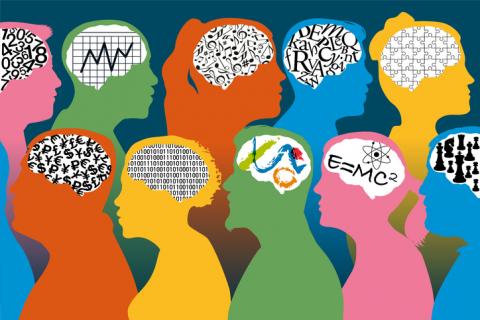For as long as I’ve known about attention deficit hyperactivity disorder (ADHD), I’ve suspected I have it. I would make jokes about it and downplay how much it really affected me.
Previous patterns and past life experiences, both personally and academically, have always led me to wonder about how and why I work the way I do. I’ve found myself unable to focus when multiple tasks are at hand, assignments taking longer than expected, and with a feeling of being misunderstood.
In 2021, as a 29-year-old, I threw in the towel and said, “What’s the harm in getting tested?” And voila – I was given the shiny new title of someone with ADHD.
It was another diagnosis I could add to the list of conditions I had: chronic depression, chronic anxiety – and now, ADHD. A lot of behaviours I had attributed to laziness, procrastination, boredom or random bursts of excitement and anger started to make sense.
Going to university with dyspraxia
Going through university with autism
Going to university with cerebral palsy
I would always convince myself that I was using ADHD as an excuse and that I was just a forgetful/lazy/chronic procrastinator. During 2020 and 2021, working collaboratively with others as part of my PhD studies at Monash University, and experiencing a lot of big changes in my personal life led me to realise that the way I functioned on a day-to-day basis was different from others – personally and professionally.
I reached out to a friend who had shared their diagnosis of ADHD on social media and I asked them about the process and how to get started, and they really encouraged me to talk to a specialist and seek a diagnosis.
I often get asked questions surrounding productivity, such as how I cope with periods of procrastination as a PhD student, as well as if I have any helpful tips for people in a similar position. The issue here is that there is no “one size fits all” approach in this scenario.
Everyone experiences neurodivergence in a different way, and it’s always worth experimenting and trying to find your own ways of working. However, although my methods might not work for everyone, they might help kickstart someone else’s journey into discovering their own methods.
In short, a few things that have helped me persevere and overcome my own barriers are:
- It’s OK to disclose and talk about your diagnosis (at your own pace and when you feel comfortable). Once you are done processing the diagnosis and have attributed behaviours and experiences to ADHD, explore discussing your diagnosis, and use it to support yourself and explain to others how it affects you.
- Progress looks different for different people and on different days. It is incredibly difficult to not compare yourself to others, but it is important to exercise self-kindness and remember that every day won’t look the same as the last.
- My PhD is not one big project; instead, it’s multiple little projects that can be further broken into smaller bits. I went from tackling each of my chapters as one big task to breaking them down into manageable smaller chunks so that I wouldn’t overwhelm myself.
- Sensory overload is real. It’s difficult to explain sensory overload, and it works differently for everyone. I now use noise-cancelling earmuffs to avoid noise and disturbances or listen to binaural beats as I work.
Having ADHD doesn’t come without its misconceptions, however. A lack of knowledge or training on the matter can lead to myriad stereotypes surrounding neurodivergence. One example is the misapprehension that people with ADHD are lazy, and it is used as an excuse for their procrastination.
Having ADHD and battling with time-blindness, as well as periods of mental blocks, is a constant struggle, and any effort made towards completing a task, whatever it might be, should be commended.
My diagnosis has been liberating and challenging. Not only because I finally knew what was “wrong” with me, but because I felt validated. I started listening to podcasts about ADHD in adults, reading books and blogs, and joined groups on Facebook and Discord to share my experiences with others who were in a similar boat.
If I was to sum up my experience with ADHD in one sentence, I’d say that it has been a largely positive but also daunting and overwhelming experience.
It’s OK if there are days where I don’t make any progress, or I sit and stare at my screen and seriously consider dropping out of my PhD. But I won’t let my PhD be added to the list of hobbies and tasks that were started but never finished.

Comments